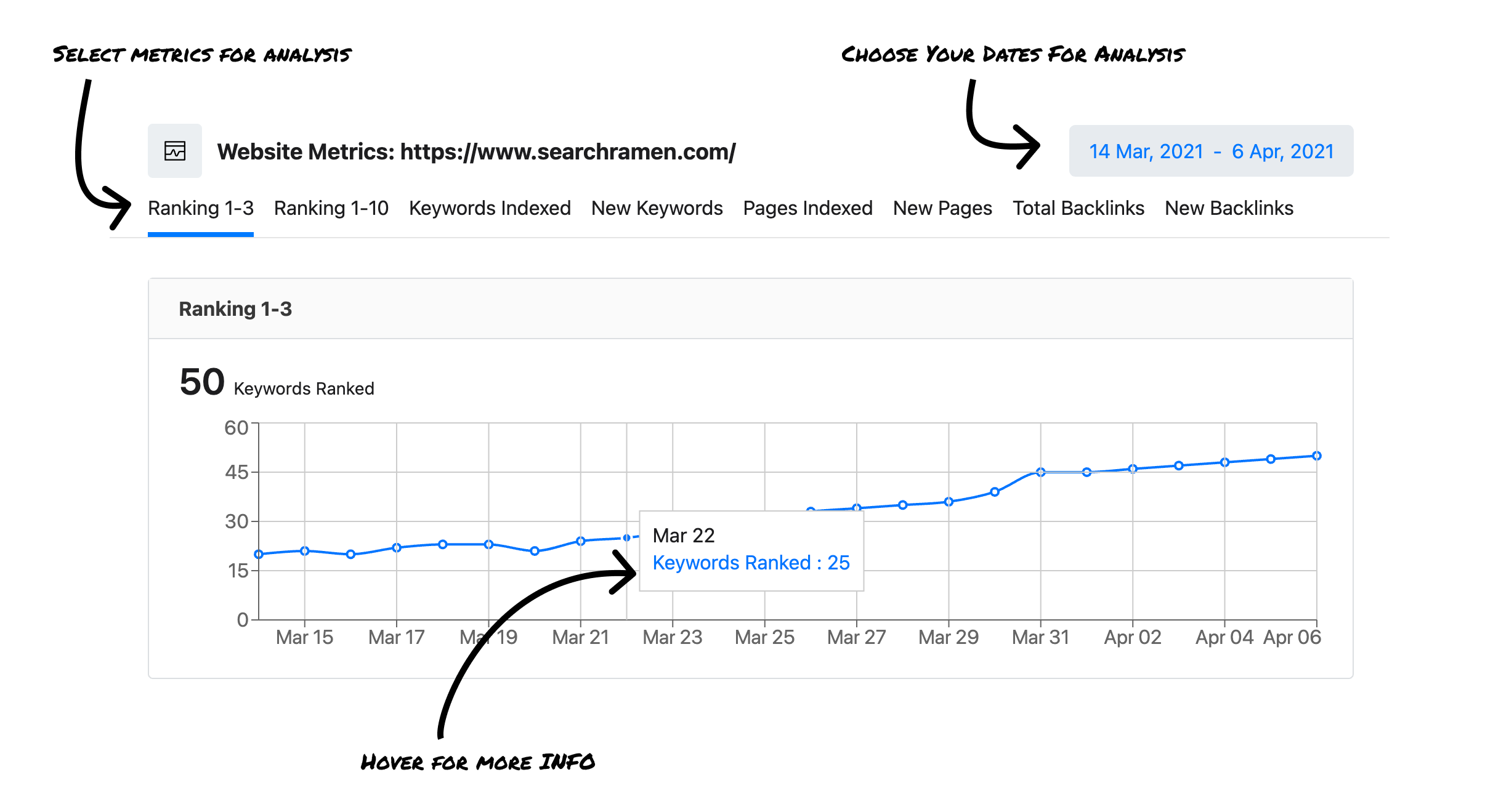In today's digital landscape, understanding how to unlock the power of API for SEO metrics is essential for businesses and marketers alike. The ability to harness data through APIs can significantly enhance SEO strategies, providing insights that are otherwise difficult to obtain. Whether you're a beginner or an advanced user, this guide will walk you through everything you need to know about APIs in the context of SEO metrics.
As websites become more complex, the demand for accurate and real-time data has never been higher. APIs act as bridges that allow different software systems to communicate, enabling seamless data exchange. This is particularly valuable in SEO, where having access to the right metrics can make or break a campaign.
This comprehensive guide aims to demystify the concept of APIs and their role in SEO metrics. By the end of this article, you'll have a solid understanding of how APIs work, their benefits, and practical ways to integrate them into your SEO strategy. Let's dive in!
Read also:Creighton Vs Louisville Prediction Analyzing The Matchup And Predicting The Outcome
Table of Contents:
- What is an API?
- Types of APIs
- The Role of API in SEO
- Benefits of Using APIs for SEO Metrics
- Choosing the Right API for SEO
- How to Integrate API into Your SEO Strategy
- Ensuring API Security in SEO
- Best Practices for Using APIs in SEO
- Top Tools and Platforms for API-Driven SEO
- Conclusion and Call to Action
What is an API?
An Application Programming Interface (API) is a set of rules and protocols that allows different software applications to communicate with each other. Essentially, an API acts as a mediator, enabling data exchange between systems without the need for human intervention. In the context of SEO, APIs provide access to valuable data such as keyword rankings, backlink profiles, and website traffic analytics.
How Does an API Work?
APIs work by sending requests and receiving responses in a standardized format, typically JSON or XML. For example, when you use an SEO tool that relies on an API, you're essentially sending a request to a server, which then processes the data and returns the results to your application. This process happens almost instantaneously, allowing for real-time data access.
Types of APIs
Not all APIs are created equal. Depending on the use case, there are several types of APIs that cater to different needs:
- Public APIs: Available to everyone and often used for integrating third-party services.
- Private APIs: Restricted to internal use within an organization, often used for improving operational efficiency.
- Partner APIs: Shared with specific business partners to facilitate collaboration.
- Composite APIs: Combine multiple APIs to perform complex tasks more efficiently.
The Role of API in SEO
In the world of SEO, APIs play a crucial role in data collection and analysis. By unlocking the power of API for SEO metrics, you can gain access to a wealth of information that can inform your strategy. APIs enable you to automate data retrieval, track performance metrics, and make data-driven decisions.
Key SEO Metrics Accessed via APIs
Some of the most important SEO metrics that can be accessed through APIs include:
Read also:Ncaa Results Your Ultimate Guide To College Sports Success
- Keyword rankings
- Backlink profiles
- Website traffic
- Search engine indexation
- Technical SEO health
Benefits of Using APIs for SEO Metrics
Integrating APIs into your SEO strategy offers numerous benefits. Here are some of the key advantages:
- Real-Time Data: APIs provide access to up-to-date information, allowing you to respond quickly to changes in the search landscape.
- Automation: Automate repetitive tasks such as data collection and reporting, freeing up time for more strategic activities.
- Scalability: APIs can handle large volumes of data, making them ideal for enterprise-level SEO efforts.
- Customization: Tailor your SEO tools to meet specific business needs by leveraging APIs.
Choosing the Right API for SEO
With so many APIs available, selecting the right one for your SEO needs can be challenging. Consider the following factors when making your decision:
- Data Coverage: Ensure the API provides the metrics you need for your SEO strategy.
- Reliability: Choose an API with a proven track record of uptime and performance.
- Documentation: Opt for APIs that offer comprehensive documentation and support.
- Cost: Evaluate the pricing structure to ensure it aligns with your budget.
How to Integrate API into Your SEO Strategy
Integrating an API into your SEO strategy involves several steps:
Step 1: Define Your Goals
Before diving into API integration, clearly define what you want to achieve. Are you looking to improve keyword rankings, monitor backlinks, or enhance technical SEO? Your goals will dictate the type of API you need.
Step 2: Choose the Right Tools
Select SEO tools that offer API integration. Popular options include SEMrush, Ahrefs, and Google Search Console API. These tools provide access to a wide range of SEO metrics and are easy to integrate into your workflow.
Step 3: Set Up the Integration
Follow the API documentation to set up the integration. This may involve generating API keys, configuring endpoints, and testing the connection. Once everything is in place, you can start pulling data and incorporating it into your SEO strategy.
Ensuring API Security in SEO
API security is paramount, especially when dealing with sensitive SEO data. Here are some best practices to ensure your API integration is secure:
- Use HTTPS: Always use secure connections to protect data in transit.
- Limit Access: Restrict API access to authorized users only.
- Monitor Usage: Regularly review API usage to detect and prevent unauthorized access.
- Update Regularly: Keep your API and associated tools up to date with the latest security patches.
Best Practices for Using APIs in SEO
To get the most out of APIs in your SEO strategy, follow these best practices:
- Focus on Key Metrics: Prioritize the metrics that matter most to your business goals.
- Automate Reporting: Use APIs to automate the generation of SEO reports, saving time and effort.
- Stay Updated: Keep abreast of changes in the SEO landscape and adjust your API usage accordingly.
- Collaborate with Teams: Share API insights with cross-functional teams to drive better results.
Top Tools and Platforms for API-Driven SEO
Several tools and platforms offer robust API capabilities for SEO. Here are some of the top options:
SEMrush
SEMrush provides a comprehensive suite of SEO tools with powerful API integration. It offers access to keyword data, backlink profiles, and competitive analysis, making it an invaluable resource for SEO professionals.
Ahrefs
Ahrefs is renowned for its extensive backlink database and SEO analytics. Its API allows users to access this data programmatically, enabling deeper insights and automation.
Google Search Console API
The Google Search Console API provides direct access to Google's search performance data, including click-through rates, impressions, and top queries. This is a must-have for any serious SEO practitioner.
Conclusion and Call to Action
In conclusion, unlocking the power of API for SEO metrics is a game-changer for businesses looking to stay ahead in the digital landscape. By leveraging APIs, you can gain access to real-time data, automate processes, and make data-driven decisions that drive results.
We encourage you to take action by exploring the APIs mentioned in this guide and integrating them into your SEO strategy. Leave a comment below to share your thoughts or ask questions. Don't forget to subscribe to our newsletter for more insightful content on SEO and digital marketing.
Remember, the key to success in SEO lies in continuously learning and adapting. Stay informed, experiment with new tools, and never stop improving your strategy. Happy optimizing!


